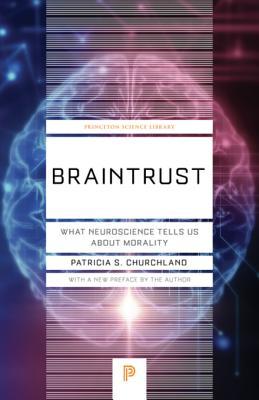What is morality? Where does it come from? And why do most of us heed its call most of the time? In Braintrust, neurophilosophy pioneer Patricia Churchland argues that morality originates in the biology of the brain. She describes the neurobiological platform of bonding that, modified by evolutionary pressures and cultural values, has led to human styles of moral
Read Online Braintrust: What Neuroscience Tells Us about Morality - Patricia S. Churchland file in PDF
Related searches:
Churchland explores how we develop morality and how it works in our moral lives from a neuroscience perspective.
9 mar 2011 churchland - braintrust: what neuroscience tells us about morality. This event has been cancelled at the request of the presenter.
19 jun 2018 in braintrust: what neuroscience tells us about morality, churchland asks where values come from, and incorporates biological sciences with.
In braintrust, neurophilosophy pioneer patricia churchland argues that morality originates in the biology of the brain.
Jan 29, 2014 - why are humans moral? patricia churchland, author of braintrust� what neuroscience tells us about morality, is here to explain how humans.
Semantic scholar extracted view of braintrust: what neuroscience tells us about morality.
Inbraintrust, neurophilosophy pioneer patricia churchland argues that morality originates in the biology of the brain.
To ground her thesis, “that morality originates in the neurobiology of attachment and bonding”, churchland expounds on four processes in the brain: caring,.
31 jan 2012 in braintrust, neurophilosophy pioneer patricia churchland argues that morality originates in the biology of the brain.
Braintrust: what neuroscience tells us about morality: amazon.

Post Your Comments: